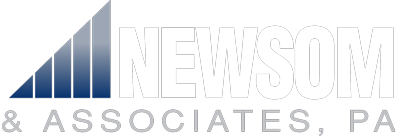An S corporation is taxed differently than an unincorporated proprietorship because the S corporation doesn’t incur self-employment tax. This is the tax on a proprietor’s profit that substitutes for payroll taxes covering Social Security and Medicare.
Shareholders of an S corporation pay only regular income tax on their respective shares of business profit.
Shareholders of an S corporation pay only regular income tax on their respective shares of business profit – regardless of whether the corporation distributes any profit. This regular income tax assessment is identical to a proprietorship. However, there are no payroll taxes on S corporation profits. S corporation employees – including shareholders who operate the business – incur payroll taxes on their wage compensation.
Wage Requirements
These circumstances result in an incentive for S corporation shareholders to minimize their own wages. This increases the corporate profit that’s not subject to payroll taxes. The Internal Revenue Service (IRS) is increasingly interested in these situations. After all, someone must operate the corporation. This person is therefore an employee who should receive wages. The IRS expects payroll taxes on some amount of wages for the operating shareholder.
The general IRS rule is that an operating shareholder of a profitable S corporation must receive “reasonable” wages for services. S corporations that pay less than “reasonable” wages to shareholders have drawn IRS attention.
Determining What’s Reasonable
The IRS has authority to adjust S corporation tax reporting to reflect reasonable wages. Doing so causes an assessment of back payroll taxes – along with penalties and interest – on shareholder wages disguised as non-payroll distributions.
This doesn’t mean that S corporations are not a viable opportunity to reduce taxes on a business. However, it does indicate that those forming S corporations should obtain competent advice about compensation to operating shareholders. Distributions of profit to shareholders should not substitute for reasonable wages.
The tax code doesn’t contain a definition of “reasonable” wages, but the IRS suggests it is determined by such things as hours worked, duties performed, and the complexity and size of the business.
S corporations making distributions to shareholders that exceed their wages commonly draw IRS scrutiny. In addition, wages to operating shareholders that are far below the market wage garner attention.
The trade-off for escaping self-employment tax on S corporation profit is incurring payroll taxes on wages that are fairly related to the value of services rendered.
In some circumstances, lower-than-market wages are justifiable. For example, a high level of debt service might impact wages. When debt includes loans from shareholders, it must involve documentation and include interest.
Other factors to consider
Another factor related to operating shareholder wages is the effect on retirement plans.
Because the profit of S corporations is not self-employment income, the IRS has ruled that such profit is not considered for determining contributions to qualified retirement plans.
The only basis for retirement plan funding is wage compensation.
There are many other tax issues with “S” Corporations. Please contact us to discuss them.
